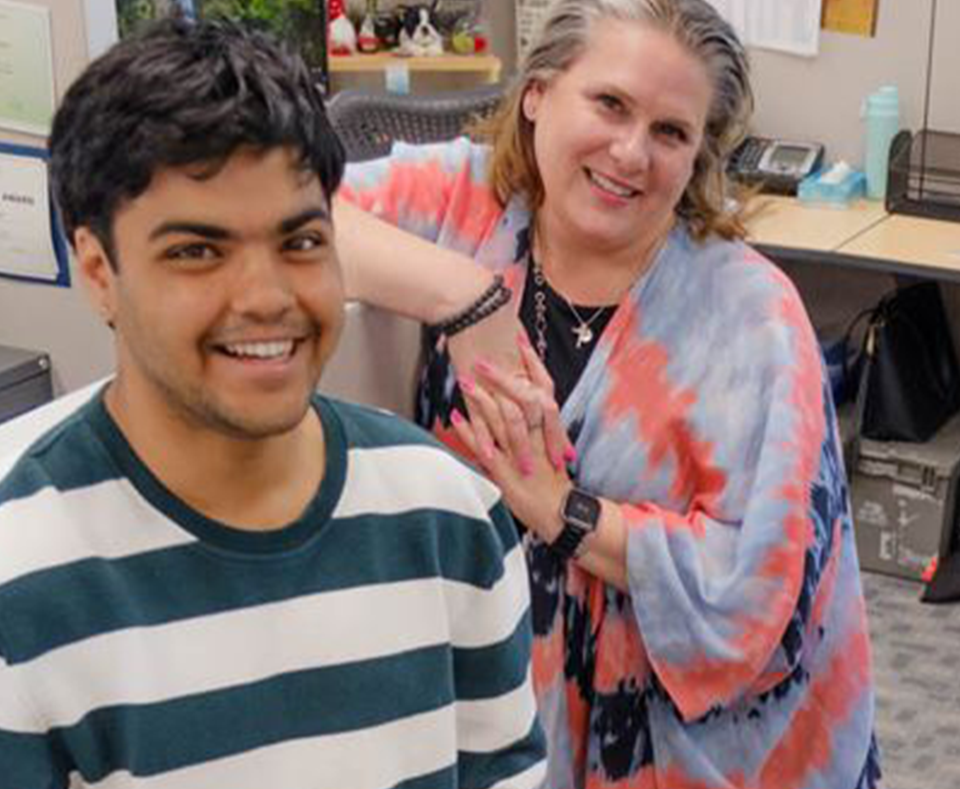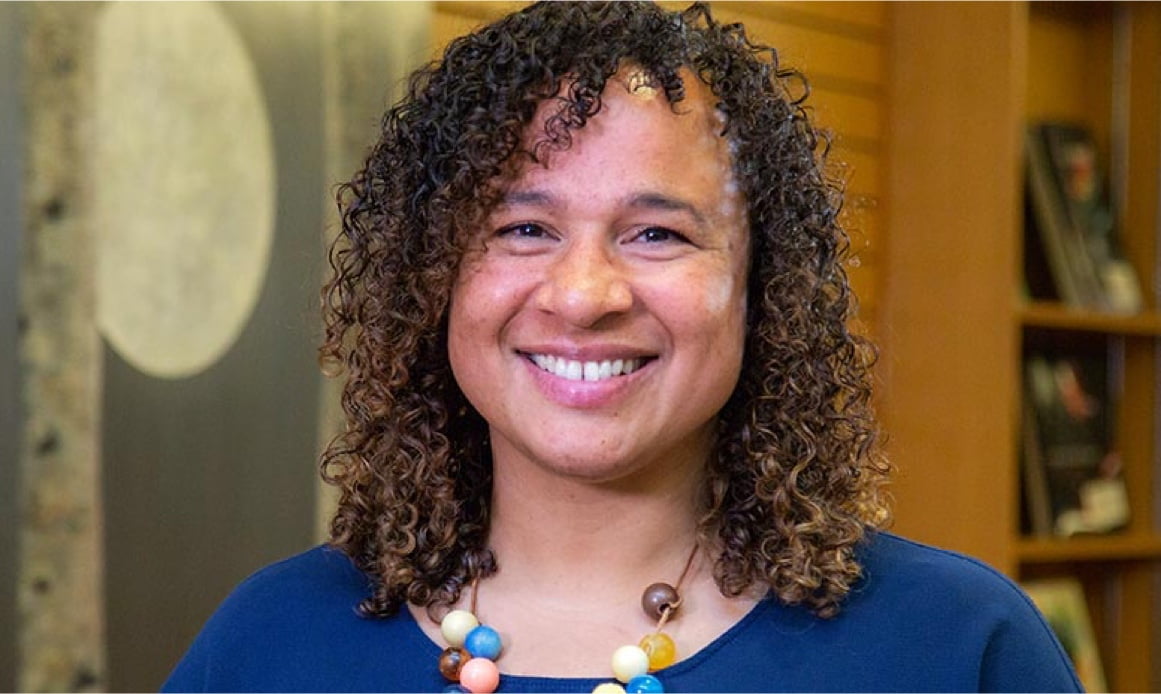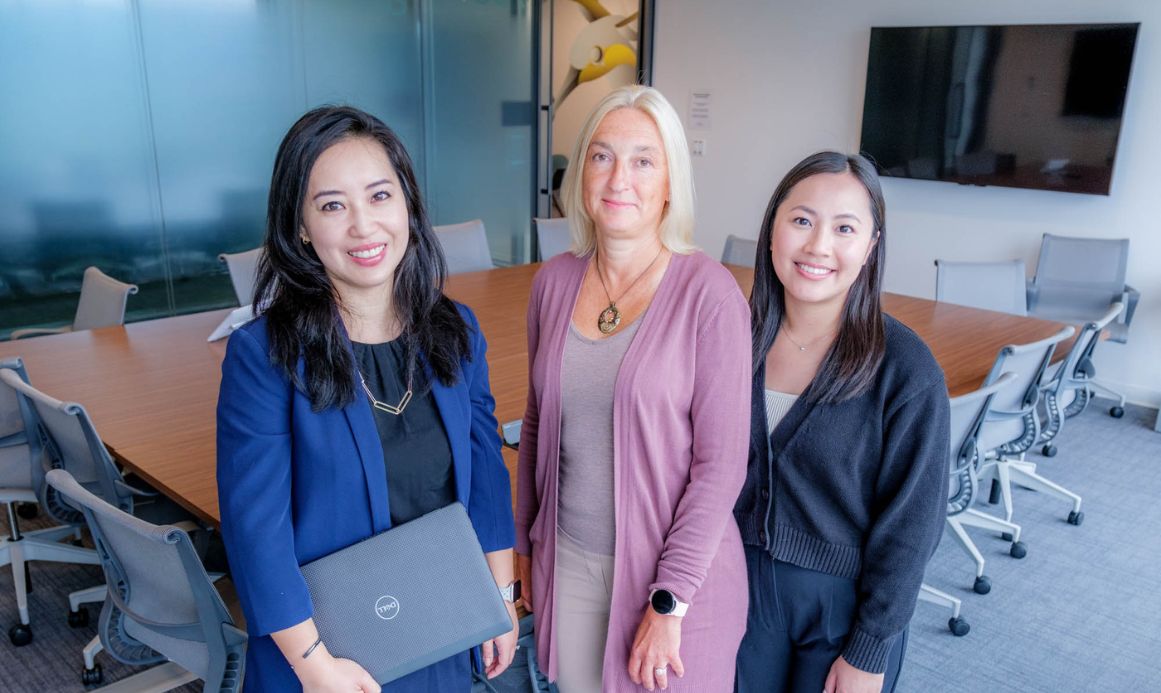Clinical Security Liaison Nurse, Registered Nurse (RN) / Registered Psychiatric Nurse (RPN), Forensic Psychiatric Hospital - Coquitlam, BC
Clinical Security Liaison Nurse - Registered Nurse (RN) / Registered Psychiatric Nurse (RPN) - Maximum and Multi-Level Security Units
BC Mental Health & Substance Use Services
Coquitlam, BC
This Regular Full-Time opportunity is with the Access, Transition, and Clinical Risk Management team.
Want to learn more about being an RPN at PHSA? Join the Registered Psychiatric Nursing Virtual Information Session on October 15 at 3 p.m. PST, hosted by BC Mental Health and Substance Use Services and BC Children’s Hospital. At this info session, you’ll have the opportunity to connect directly with recruitment advisors and a hiring leader. Register today!
You are a Registered Nurse or Registered Psychiatric Nurse who works with compassion and care while practicing trauma-informed care. You’re seeking a meaningful role that provides challenge, variety, and the opportunity to make an impact on others’ lives. As someone who seeking to better your own practice through others, you appreciate your interdisciplinary team members and enjoy collaborating on complex care issues, using trauma informed practice, harm reduction, and Indigenous Cultural Safety.
What is the Forensic Psychiatric Hospital
The Forensic Psychiatric Hospital (FPH) is a 190-bed secure facility located in Coquitlam, B.C., on the traditional, ancestral, and unceded core territory of the kwikwəƛ̓əm First Nation (Kwikwetlem). We treat people who have been found not criminally responsible for a crime or unfit to stand trial due to a mental health disorder. We deliver services to patients using the “Clinical Program Model,” which aims to deliver high-quality care to meet the specific needs of patients and is currently the best practice in health care.
Learn about working as a member of the Forensic Psychiatric Hospital team.
Watch this video to learn about working with BC Mental Health and Substance Use Services!
What you’ll do
- Facilitate staff learning by acting as a clinical resource and demonstrates expertise and leadership in nursing and clinical practice by methods such as demonstrating patient de-escalation, PVPC, ATR (Code White) and seclusion entry procedures, answering questions related to clinical practice issues, problem solving, troubleshooting concerns and leading clinical and security interventions.
- Work as an integral member of the interdisciplinary clinical team and provides patient clinical security and risk information and management advice as it relates to the development of risk assessments and treatment plans. Collaborate and assists clinical staff in the development of health outcomes that support patient recovery and therapeutic care. Provide information in the development of behavioural/treatment patient care plans and risk management plans for patients. Promote the growth and development of an innovative and progressive attitude with a focus on the recovery of the patient while recognizing the need for therapeutic caution.
- Collaborate with interdisciplinary teams to assist, recommend and guide safe seclusion care of patients and staff on FPH units, which includes following the policy and procedure. Collaborate with teams on, and supports colleagues with, patient transition out of seclusion. When requested plans and authorizes patient entry/exit of seclusion.
- Support members of the interdisciplinary team with clinical decision making regarding patient de-escalation, PVPC, ATR (Code White) and seclusion entry decisions and procedures. Evaluates performance of ATR team post incident by assisting with post incident debriefing with patient and clinical team and providing feedback to ensure care is provided according to program standards and clinical practice guidelines. Leads and coordinates mock PVPC ATR code white drills by guiding staff through refresher scenarios, observing staff performing activities and providing feedback to ensure scenario is completed according to established standards and clinical practice guidelines.
- Provide critical feedback to leadership team about staff PVPC and ATR competencies, including skill development improvements post incident and post incident investigations. Provide direct follow up with staff to improve patient outcomes.
What you bring
Qualifications
- Current practicing registration as a Registered Nurse with the British Columbia College of Nurses & Midwives (BCCNM).
- Three (3) years' recent, related nursing experience in the designated clinical area, including working with individuals with mental health and substance use disorders and one (1) year related administrative/supervisory experience, or an equivalent combination of education, training and experience.
- Valid BC Driver's License and access to personal vehicle for local area travel may be required.
- Successful completion of PVPC, ATR, and Therapeutic and Relational Security (See ThinkACT)
- Completion of CISM, PVPC, ATR, and TRS educator/ trainer training is preferred.
- Demonstrate comprehensive knowledge of the historic and ongoing impacts of settler colonialism and systemic racism on Indigenous Peoples within social and health contexts. This includes understanding how these factors contribute to current health disparities and barriers to care. Show a clear commitment to identifying, challenging, and eradicating Indigenous-specific racism and all forms of discrimination impacting equity-deserving groups within healthcare settings. This involves recognizing personal biases, institutional barriers, engaging in anti-racism education and training and advocating for systemic change.
- Demonstrated knowledge and understanding of legislative obligations and provincial commitments within BC Mental Health & Substance Use Services contexts found in the foundational documents including Truth & Reconciliation Commission’s Calls to Action (2015), In Plain Sight (2020), BC's Declaration on the Rights of Indigenous Peoples Act (2019), United Nations Declaration on the Rights of Indigenous Peoples (UNDRIP), Reclaiming Power and Place Missing and Murdered Indigenous Women & Girls Calls for Justice (2019), the Declaration Act Action Plan and Remembering Keegan: A First Nations Case Study, BC Human Rights Code, Anti-racism Data Act and how they intersect across the health care system.
Core Competencies
- Brings an understanding of the Indigenous specific racism and the broader systemic racism that exists in the colonial health care structure, and has demonstrated leadership in breaking down barriers and ensuring an environment of belonging. Embed Indigenous Cultural Safety and Humility into all aspects of work. This means creating an environment where Indigenous patients feel respected, valued, and understood. Foster trust through respectful communication, active listening, and honoring equity-deserving people's perspectives on health and wellness. Commit to ongoing education and training on Indigenous health issues, cultural safety, and DEI principles. Participate in workshops, cultural immersion experiences, and continuous professional development to stay informed and responsive to equity-deserving groups. Provide patient-centred care that respects Indigenous ways of knowing and healing, respects BIPOC experiences and world views ensuring that care plans are culturally relevant and holistic.
- Knowledge of social, economic, political and historical realities of settler colonialism on Indigenous Peoples and familiarity with addressing Indigenous-specific anti-racism, anti-racism and Indigenous Cultural Safety and foundational documents and legislative commitments (The Declaration Act, the Declaration Action Plan, TRC, IPS, Remembering Keegan, etc.).
Skills & Knowledge
- Knowledge of complex mental illness, substance use and concurrent disorders and treatment, and of the principles of recovery.
- Knowledge of Psychosocial Rehabilitation methodology, substance dependency and substance use treatment, psychopharmacology (indications and side-effects) and psychotherapeutic and counseling skills.
- Knowledge of Trauma-Informed Practice and its application to the defined population of clients.
- Demonstrated ability to provide effective leadership, supervision, work direction and consultation.
- Demonstrated ability to conduct comprehensive mental health and substance use clinical and risk assessments, utilizing relevant tools and rating scales, and formulate a treatment plan, participate in transition planning, and provide crisis intervention.
- Ability to apply knowledge of theory and practice to a case management process.
- Demonstrated ability to communicate (orally and in writing) and collaborate effectively with patients/clients and their families, coworkers, physicians, other health care staff, and staff of external agencies.
- Demonstrates a commitment to beginning and continuing their personal learning journey related to Indigenous-specific racism and dismantling systems of oppression, as well as addressing racism more broadly. Shows willingness to articulate and share their learning experiences to contribute to a culture of motivation and inspiration among peers.
- Demonstrates foundational knowledge of the social, economic, and political realities of settler-colonialism and its impacts on Indigenous peoples and equity-deserving groups within social and health contexts. Understands the impact of social determinants of health-on-health outcomes. Shows a commitment to learning about and upholding legislative obligations and provincial commitments outlined in foundational documents such as the Truth & Reconciliation Commission’s Calls to Action (2015), In Plain Sight (2020), BC's Declaration on the Rights of Indigenous Peoples Act (2019), United Nations Declaration on the Rights of Indigenous Peoples (UNDRIP), Reclaiming Power and Place: Missing and Murdered Indigenous Women & Girls Calls for Justice (2019), the Declaration Act Action Plan, Remembering Keegan: A First Nations Case Study, the BC Human Rights Code, Anti-Racism Data Act, and the Distinctions Based Approach.
What we bring
Every PHSA employee enables the best possible patient care for our patients and their families. Whether you are providing direct care, conducting research, or making it possible for others to do their work, you impact the lives of British Columbians today and in the future. That’s why we’re focused on your care too – offering health, wellness, development programs to support you – at work and at home.
- Join one of BC’s largest employers with province-wide programs, services and operations – offering vast opportunities for growth, development, and recognition programs that honour the commitment and contribution of all employees.
- Access to professional development opportunities through our in-house training programs, including +2,000 courses, such as our San’yas Indigenous Cultural Safety Training course, or Core Linx for Leadership roles.
- Enjoy a comprehensive benefits package, including municipal pension plan, and psychological health & safety programs and holistic wellness resources.
- Annual statutory holidays (13) with generous vacation entitlement and accruement.
- PHSA is a remote work friendly employer, welcoming flexible work options to support our people (eligibility may vary, depending on position).
- Access to WorkPerks, a premium discount program offering a wide range of local and national discounts on electronics, entertainment, dining, travel, wellness, apparel, and more.
Job Type: Regular, Full-Time
Wage: $51.31 - $65.58 per hour
Location: 70 Colony Farm Rd, Coquitlam, BC V3C 5X9
Hours of Work: Rotating; 0700-1500/ 1500-2300
Requisition # 189409E
What we do
BC Mental Health & Substance Use Services (BCMHSUS) cares for people with complex mental health and substance use challenges.
BCMHSUS program is part of the Provincial Health Services Authority (PHSA).
PHSA plans, manages and evaluates specialized health services with the BC health authorities to provide equitable and cost-effective health care for people throughout the province. Our values reflect our commitment to excellence and include: Respect people – Be compassionate – Dare to innovate – Cultivate partnerships – Serve with purpose.
PHSA and BCMHSUS are committed to employment equity, encouraging all qualified individuals to apply. We recognize that our ability to provide the best care for our diverse patient populations relies on a rich diversity of skills, knowledge, background and experience, and value a safe, inclusive and welcoming environment.
Learn more about PHSA and our programs: jobs.phsa.ca/programs-and-services
PHSA is committed to anti-racism and equity in our hiring and employment practices. With learning and compassion, we are addressing existing inequities and barriers throughout our systems. PHSA is seeking to create a diverse workforce and to establish an inclusive and culturally safe environment. We invite applications and enquiries from all people, particularly those belonging to the historically, systemically, and/or persistently excluded groups identified under the B.C. Human Rights Code.
One of PHSA’s North Star priorities is to eradicate Indigenous-specific racism, which includes ongoing commitments to Indigenous recruitment and employee experience as well as dismantling barriers to health care employment at every level. We welcome Indigenous individuals to apply and/or contact the Sanya’k̓ula Team (Indigenous Recruitment & Employee Experience) for support at indigenous.employment@phsa.ca.
Indigenous-specific anti-racism initiatives are rooted in addressing the unique forms of discrimination, historical and ongoing injustices, and exclusion faced by Indigenous peoples. These initiatives align with an Indigenous rights-based approach, recognizing the inherent rights and title of BC First Nations and self-determination of all First Nations, Inuit and Métis communities. PHSA is mandated to uphold legislative obligations and provincial commitments found in the foundational documents including the Truth & Reconciliation Commission’s Calls to Action (2015), In Plain Sight (2020), BC's Declaration on the Rights of Indigenous Peoples Act (2019), United Nations Declaration on the Rights of Indigenous Peoples (UNDRIP), Reclaiming Power and Place Missing and Murdered Indigenous Women & Girls Calls for Justice (2019), the Declaration Act Action Plan and Remembering Keegan: A First Nations Case Study.
Attention current employees of PHSA:
You must apply via your internal profile at http://internaljobs.phsa.ca.
The internal job posting expires on September 28, 2025 and will no longer be accessible. If the internal job posting has expired, please e-mail internaljobshelpu@phsa.ca with the six-digit job requisition number and your PHSA employee ID number to be considered as a late internal applicant. Please do not apply for the external job posting.
If you have not yet set up an internal profile, please e-mail internaljobshelpu@phsa.ca with your PHSA employee ID number to obtain your temporary password. Our business hours are Monday-Friday 8:30am-4:30pm, excluding Statutory Holidays and a Help Desk Representative will respond to you with 1-2 business days.
If you are not a current employee of PHSA and require assistance with your application, please contact the External Careers team at careers@phsa.ca.
Learn More
Related Content
-
 Our Programs Explore to find the right program for you at PHSA.
Our Programs Explore to find the right program for you at PHSA. -
 Rewarding Health Care Nursing Careers and Jobs with PHSA Provide specialty nursing in clinical health care and research. Explore careers throughout B.C. with the Provincial Health Services Authority (PHSA).
Rewarding Health Care Nursing Careers and Jobs with PHSA Provide specialty nursing in clinical health care and research. Explore careers throughout B.C. with the Provincial Health Services Authority (PHSA). -
 Indigenous Health Care Jobs and Careers with PHSA Join our thriving Indigenous workforce in a corporate or clinical role. Explore careers in B.C. with the Provincial Health Services Authority (PHSA).
Indigenous Health Care Jobs and Careers with PHSA Join our thriving Indigenous workforce in a corporate or clinical role. Explore careers in B.C. with the Provincial Health Services Authority (PHSA). -
 Physician Careers at PHSA Our PHSA medical leadership team provides care that is among the best in the world, contributing to research that is changing the future of health care.
Physician Careers at PHSA Our PHSA medical leadership team provides care that is among the best in the world, contributing to research that is changing the future of health care. -
 Health Care Correctional Health Services Jobs and Careers With PHSA Correctional Health Services provides exceptional care for incarcerated patients. Join us in a career with Provincial Health Services Authority (PHSA).
Health Care Correctional Health Services Jobs and Careers With PHSA Correctional Health Services provides exceptional care for incarcerated patients. Join us in a career with Provincial Health Services Authority (PHSA). -

-

-
 Talent on Demand Talent on Demand is PHSA’s unique in-house recruitment program offering temporary employment opportunities in health care across British Columbia.
Talent on Demand Talent on Demand is PHSA’s unique in-house recruitment program offering temporary employment opportunities in health care across British Columbia. -
 PHSA recognized as a Top Employer in BC PHSA has been named one of BC's Top Employers for 2024 and 2025, recognizing its commitment to a supportive, enriching workplace. Join our award-winning team—apply today!
PHSA recognized as a Top Employer in BC PHSA has been named one of BC's Top Employers for 2024 and 2025, recognizing its commitment to a supportive, enriching workplace. Join our award-winning team—apply today! -
 Infection Prevention and Control Careers Become a member of the Infection Prevention and Control (IPAC) team and play a critical role in improving patient care by preventing the spread of infections across our health care system.
Infection Prevention and Control Careers Become a member of the Infection Prevention and Control (IPAC) team and play a critical role in improving patient care by preventing the spread of infections across our health care system. -
 British Columbia Lifestyle Located on Canada’s west coast, the province of British Columbia offers a range of lifestyle options including urban bustle, suburban convenience, rural adventure, and small-town living.
British Columbia Lifestyle Located on Canada’s west coast, the province of British Columbia offers a range of lifestyle options including urban bustle, suburban convenience, rural adventure, and small-town living.
Jobs for You
- Team Lead Oct. 16, 2025
- General Duty Nurse, FIR Oct. 16, 2025
- Pediatric Echocardiographer Oct. 16, 2025
You have not recently viewed any jobs
You have not saved any jobs












